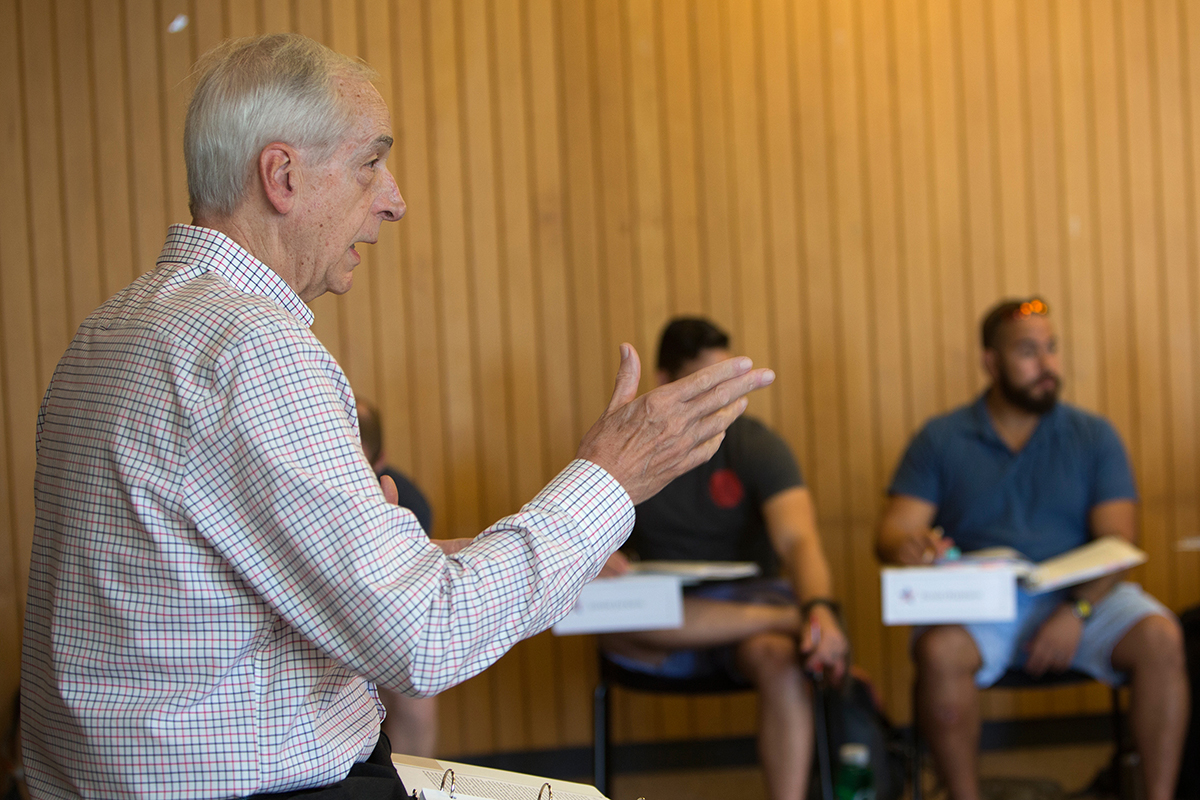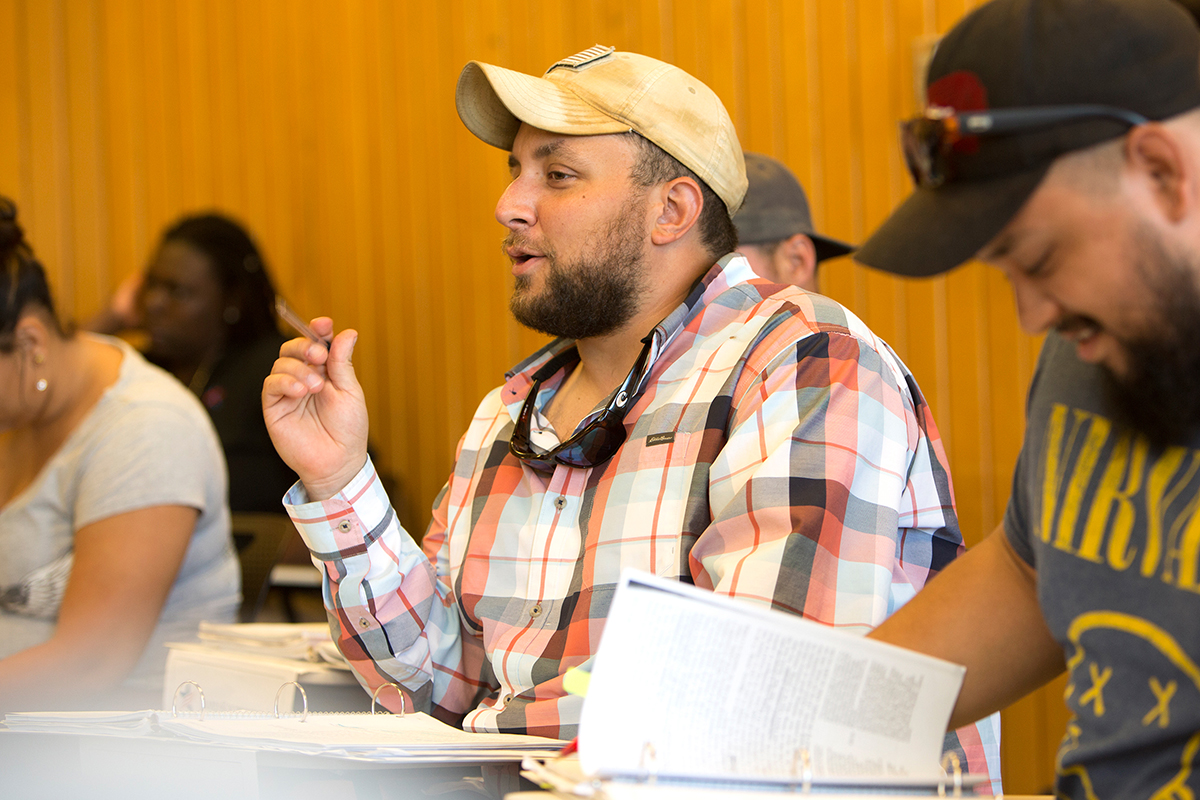Rawlings engages veterans through ancient texts on war
By Nancy Doolittle


Imagine serving in the military, having life-changing experiences, then re-entering civilian life only to realize that to fulfill your dreams you need to go to college.
And imagine the only preparation you have is your memories of high school.
Then imagine contributing to a classroom discussion with the president of an Ivy League institution and having him say of your comment, “You’re absolutely right,” or “That’s a very important point,” or “Good question.”
That was the experience of 15 veterans and military personnel July 27 who participated in the weeklong 2016 Warrior Scholar Project (WSP) at Cornell, when Interim President Hunter Rawlings, emeritus professor of classics, taught a session focusing on war in the Middle East and the Mediterranean as reflected in the writings of ancient Greek historians Herodotus and Thucydides.
“President Rawlings was awesome,” said Joseph Martinez, who served in the Second Ranger Battalion in the U.S. Army and is currently enrolled in a community college. “He explained the texts eloquently but made it easy to understand them. You can tell he loves being in the classroom.”
The WSP, launched at Yale University in 2012 and now offered at 12 colleges and universities across the country, helps veterans and enlisted service men and women leverage their experience, training, drive and discipline to transition from combat to academic life. The academic “boot camp” focuses on reading, writing and study skills, and deals with topics familiar to veterans.
The Warrior Scholar Project “is a great experience for guys like me, who have grown and matured in the military, to get our feet wet, to dive into the academic world, which is where I want to be when I am discharged,” said Marine Sgt. Patrick Roberts, who is stationed at Camp Pendleton, California.
In Rawlings’ class, the veterans compared democracy, oligarchy and monarchy; analyzed how one ancient author used a eulogy to assert the importance of honor and public engagement; and saw how those ideals could disintegrate through the use of power and fear of its loss.
Rawlings demonstrated how to critically analyze and discuss each reading by considering the context in which it was written. Did the conversation recounted by Herodotus actually take place? What was Pericles’ agenda in giving a funeral speech that shifted from eulogizing fallen soldiers to admonishing the living to engage in public service? What does the dialogue between the invaded Melian community and the invading Athenians say about a democracy in which ideals of honor and sacrifice are no longer values to live by?
Other WSP morning seminars included discussions of the Declaration of Independence by Gretchen Ritter ’83, the Harold Tanner Dean of the College of Arts and Sciences; the U.S. Constitution by Deputy Provost John Siliciano; the Gettysburg Address and Lincoln’s second inaugural address by Professor Shirley Samuels; and addresses by Martin Luther King Jr., Dwight D. Eisenhower and John F. Kennedy, by Associate Professor John Weiss.
“These professors are experts in their fields and have a passion for what they teach. They aren’t just there doing a job,” said Ines Nunez, who served in the army for seven years and is now studying early childhood development at a community college in Pennsylvania.
The boot camp also included afternoon writing classes, guided study time and workshops taught by student tutors and staff from the national program.
“This project gives you skills that you can use later,” said Crosby Kisler, a seven-year Army Ranger veteran attending Columbia University.
The project also provides networking opportunities, said Vice Provost Judith Appleton, whose office sponsors the project. “The students now know each other, their tutors and other project alumni who share their backgrounds and transition experiences,” she said. “They can give each other feedback and encouragement, and reach out to the project staff for guidance as they pursue their college degrees at the institutions they choose.”
Media Contact
Get Cornell news delivered right to your inbox.
Subscribe